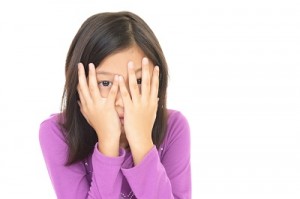By Dr. Joe Molitierno, Pediatric Urology Associates
 Bedwetting is a common problem that can cause a great deal of stress and anxiety. Parents are often concerned that there is something wrong with their child because they have accidents at night. Children are often embarrassed by their bedwetting and hesitant to go to sleepovers and sometimes even worried about taking naps.
Bedwetting is a common problem that can cause a great deal of stress and anxiety. Parents are often concerned that there is something wrong with their child because they have accidents at night. Children are often embarrassed by their bedwetting and hesitant to go to sleepovers and sometimes even worried about taking naps.
It is important to note that bedwetting is a very normal part of development for many children. Nearly 25 percent of five year-old children wet the bed, and this decreases to less than five percent by the age of 10. Most experts agree that there is about a 15 percent chance of outgrowing bedwetting each year. Bedwetting can sometimes be genetic, and children of bedwetters have a greater than 40 percent chance of being bedwetters themselves.
The underlying causes can vary. Most often the communication between the brain and the growing bladder just needs more time to mature. In rare cases, there is a serious underlying disease process such as neurologic cause or diabetes, which can lead to new occurrences of bedwetting in a previously dry child. But in most cases, nighttime wetting is due to urine holding for long periods during the day, dietary triggers, and drinking a great deal of fluid late in the day. Another factor is underlying constipation that compresses the bladder, making it hold less volume and causing irritation. Children with overactive bladders and resulting daytime urinary frequency will often wet the bed until they either outgrow their overactive bladders or treat their symptoms with medication. Even in these cases, the nighttime wetting usually lags behind the resolution of daytime symptoms.
The evaluation for bedwetting should never begin before five years of age, and most physicians don’t routinely evaluate children before the age of seven unless they have both day and nighttime symptoms that are impairing daily activities or they are experiencing new onset. Evaluation includes a thorough physical examination, discussion of diet and voiding habits during the day, and a thorough evaluation for constipation. A urinalysis may be useful but is not always necessary. Imaging is not usually performed in the evaluation of isolated nighttime wetting unless there are also daytime symptoms or the patient has failed multiple therapies.
The treatment for nighttime wetting begins with a combination of bowel and bladder retraining and dietary modifications. We encourage urination every two hours during the day, and often we have the child “count to ten and pee again” to ensure he or she is completely emptying the bladder. Dietary modifications include the removal of caffeine, carbonation and artificial red dyes from the diet. Drinking after dinner should be limited to only sips of water if needed, and consuming milk products and foods and drinks with a high sodium content should be restricted late in the day because this leads to an increased urine production at night.
Please note that punishment has NO role in the treatment of bedwetting. Positive reinforcement is important because children usually feel embarrassed about their situation and this affects their self-esteem. Additionally, leaving a child in a Pull-Up overnight does not encourage nighttime wetting or extend its duration, and in fact may help make the child feel better and more comfortable than needing their sheets and clothes laundered frequently.
If these conservative measures are unsuccessful, a pediatric urologic evaluation is often necessary. Alarm systems or medications may be useful in helping some children stay dry, while other children may need a combination of therapies. But in every case, the mainstay of treatment is bowel and bladder retraining, treatment of constipation and dietary modifications.
If you have any questions or concerns about bedwetting, never hesitate to discuss with your pediatrician.
Joe Molitierno, MD is a board-certified Pediatric Urologist who trained at both UNC Chapel Hill and Emory Schools of Medicine. He has been practicing in the Charlotte area for over nine years. He is a partner with Pediatric Urology Associates, PA and is the director of the Nocturnal Enuresis and Wetting Treatment (NEWT) center, the Carolinas first pediatric voiding dysfunction center.
This blog was produced in partnership with Charlotte Parent. Click here for the original post and other parenting resources.













